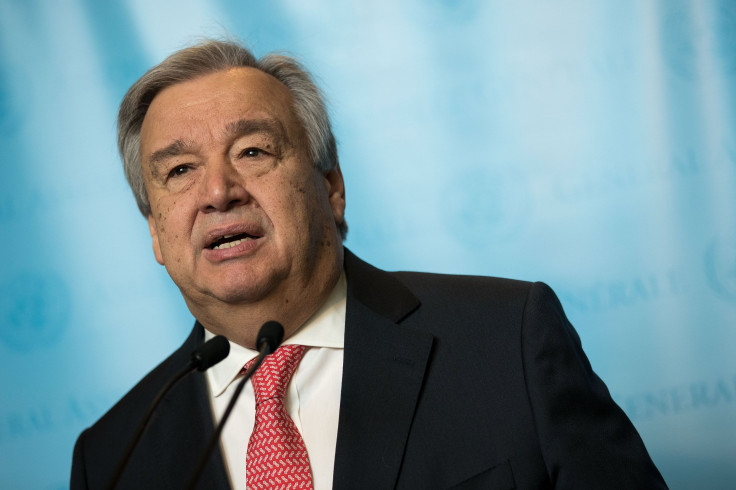Muslim Discrimination In US, Europe: Muslims Have Become ‘Convenient Scapegoats’ UN Security General Says

Muslims have become “convenient scapegoats,” United Nations Secretary-General António Guterres said Tuesday, addressing a forum to tackle the recent rise in discrimination against Muslims.
The forum in New York City was co-organized by the Organization of Islamic Cooperation (OIC) and the Permanent Missions of the United States, Canada and the European Union Delegation.
Speaking in a video message, Guterres, who assumed office at the start of 2017, outlined both what he believes is the cause for the recent trend and its cost to society.
"In times of insecurity, communities that look different become convenient scapegoats. We must resist cynical efforts to divide communities and portray neighbors as 'the other.'"
"Discrimination diminishes us all," he said. "It prevents people – and societies – from achieving their full potential. Let us draw strength from the values of inclusion, tolerance and mutual understanding that are at the heart of all major faiths and the United Nations Charter. As the holy Quran states: 'nations and tribes were created to know one another.'"
In the U.S., the number of hate crimes targeting Muslims rose 67 percent in 2015, according to FBI data, up to their highest level since the aftermath of the 9/11 attacks. Meanwhile, in Europe, the number of people holding anti-Muslim views has also been on the increase.
Those numbers have accompanied the rise of politicians espousing anti-Muslim rhetoric. President-elect Donald Trump has called for a ban on all Muslims entering the country, a registry for Muslims and for the surveillance of Mosques. There has been a similar trend in Europe, with far-right National Front leader Marine Le Pen a top contender to become France’s president later this year.
Addressing the forum, the OIC’s Ambassador to the UN, Moiz Bokhari, stated that political rhetoric was one of several causes for the spike in anti-Muslim sentiment.
“They include the rise of xenophobic political discourse and movements, upsurge in the extremist ideologies and related terrorist attacks across the world, global migration crisis due to unresolved political issues, and promotion of negative stereotypes and misinformation against Muslims based on ignorance of Islam by various forms of media,” he said according to a statement.
Bokhari added that that “all types of radical extremist discourse” must be countered through education as well as the media.
© Copyright IBTimes 2024. All rights reserved.











